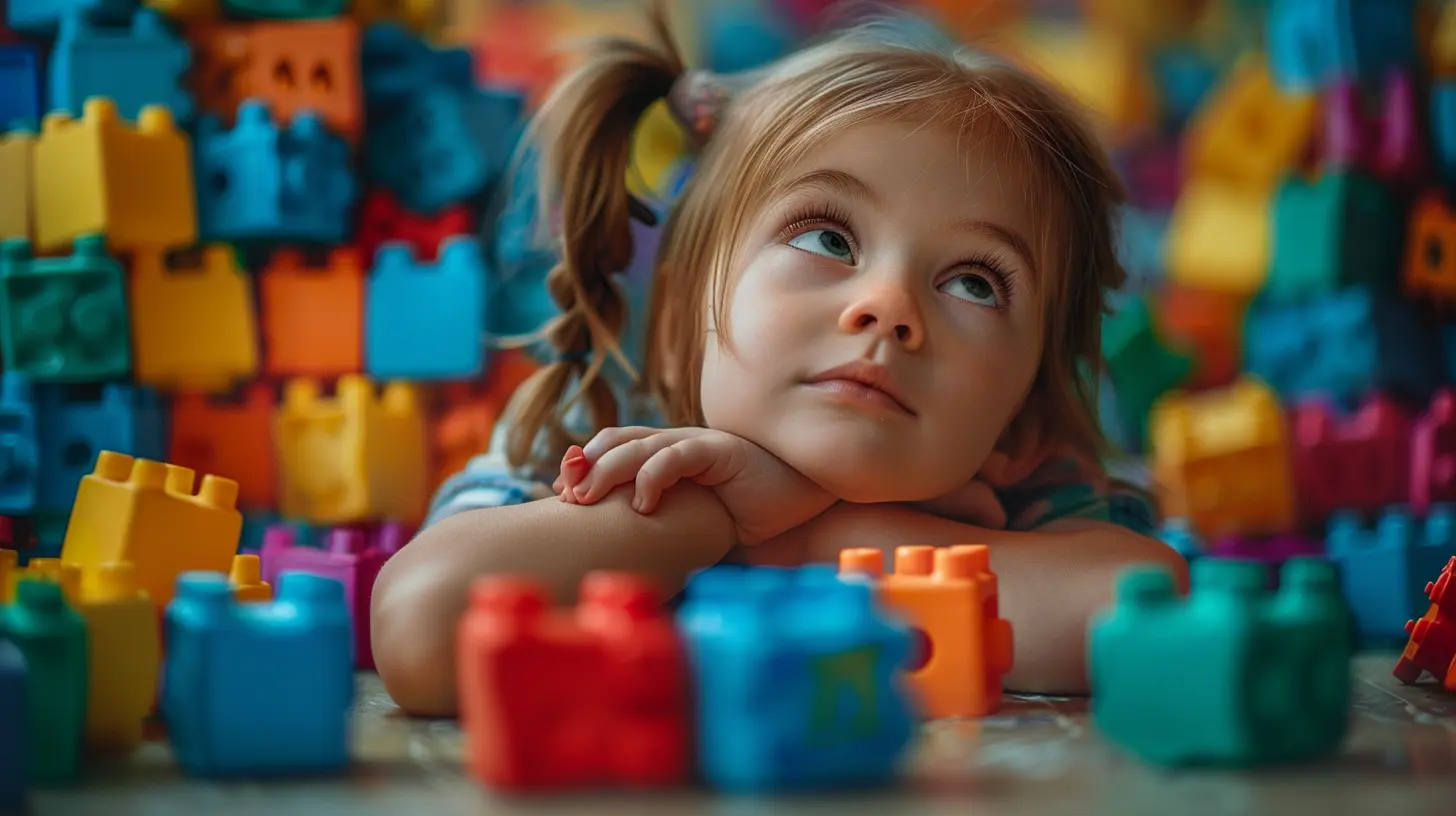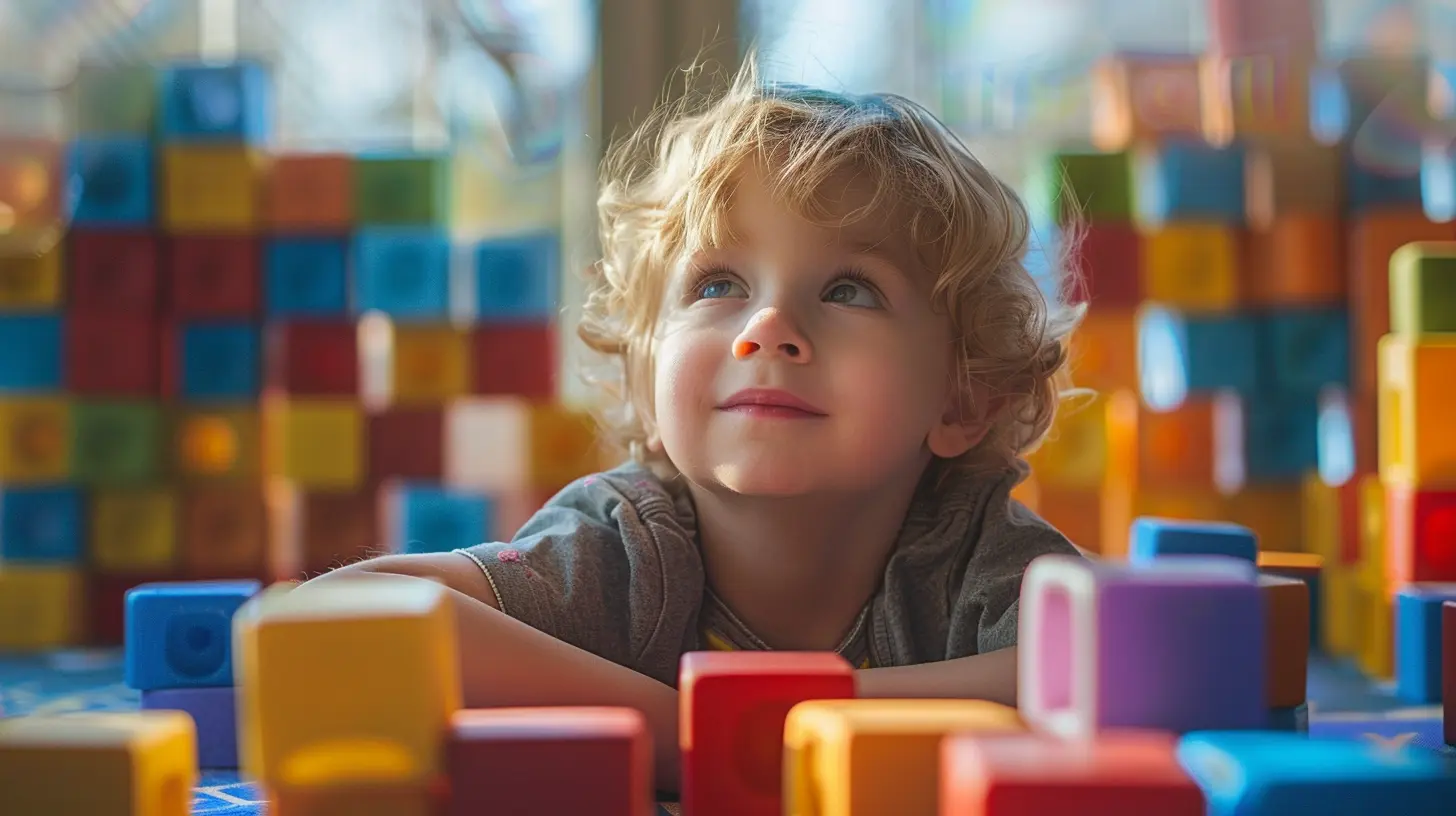Piaget’s Stages of Cognitive Development: A Deeper Dive into Childhood Learning
17 May 2025
Childhood is a fascinating time filled with curiosity, exploration, and countless "aha" moments. Ever wondered how little minds grow and make sense of the world? Well, Jean Piaget, a Swiss psychologist, had the same question. He spent years studying how children think and learn, leading him to develop one of the most influential theories in psychology—Piaget’s Stages of Cognitive Development.
So, if you're a parent, teacher, or just someone interested in understanding how kids' minds work, buckle up! We're about to take a joyful ride through the incredible journey of childhood learning. 
Who Was Jean Piaget?
Before we dive into his theory, let's talk about the man himself. Jean Piaget (1896–1980) was a brilliant psychologist known for his work in child development. He believed that children aren’t just mini-adults; they think and process the world in entirely different ways. His research led to the idea that cognitive development happens in stages, each building upon the last.His theory completely changed the way we understand learning and education today. Schools all over the world use his insights to shape curriculum and teaching methods! 
The Four Stages of Cognitive Development
Piaget proposed that children go through four distinct stages of cognitive development. Each stage has its own unique characteristics, challenges, and milestones. Ready to dive in? Let’s go!1. The Sensorimotor Stage (Birth to 2 Years)
What’s Happening Here?Imagine a baby experiencing the world for the very first time—every sound, touch, and movement is an adventure! In this stage, learning happens through senses and actions.
Key Milestones:
- Object Permanence: This is a fancy way of saying that babies learn that objects continue to exist even when they can’t see them. (Ever played peek-a-boo? That’s why babies initially think you disappear and magically reappear!).
- Cause and Effect: Babies start to notice that their actions have consequences—like dropping a toy on purpose just to see an adult pick it up.
Why It Matters:
This stage lays the foundation for curiosity and exploration. Babies learn by interacting with their environment, which is why hands-on activities, textures, and movement are crucial for brain development!
2. The Preoperational Stage (2 to 7 Years)
What’s Happening Here?Welcome to the world of imagination and make-believe! At this stage, kids develop language, symbols, and the ability to engage in pretend play.
Key Milestones:
- Symbolic Thinking: Ever seen a child turn a cardboard box into a spaceship? That’s symbolic thinking in action! They begin to represent objects and ideas through words, drawings, and role-playing.
- Egocentrism: Kids at this stage see the world from their own perspective. If you've ever had a conversation with a preschooler, you know they assume you know everything they do!
- Lack of Conservation: If you pour the same amount of juice into a tall glass and a short, wide one, a child at this stage will think the tall glass has more juice.
Why It Matters:
This stage is crucial for developing creativity and problem-solving skills. While kids may still struggle with logic, their ability to express themselves and engage in play is blossoming!
3. The Concrete Operational Stage (7 to 11 Years)
What’s Happening Here?Here’s where things start to make more logical sense. Kids in this stage develop organized and rational thinking, but only about concrete (real-world) concepts.
Key Milestones:
- Conservation: They finally get that the amount of water stays the same, whether it's in a short fat cup or a tall thin one!
- Logical Thinking: They can solve problems, classify objects, and follow structured rules (though abstract ideas still might be tricky).
- Less Egocentric: They start understanding that other people have different perspectives and feelings.
Why It Matters:
This is the stage where kids become problem solvers. They start thinking logically, which helps them grasp math, science, and cause-and-effect relationships.
4. The Formal Operational Stage (12 Years and Up)
What’s Happening Here?Now we've arrived at the stage where abstract thinking takes center stage! Teenagers and adults can now think hypothetically, reason logically about complex ideas, and question the world around them.
Key Milestones:
- Abstract Thinking: They can think about concepts like love, justice, and ethics without needing real-world examples.
- Hypothetical Problem Solving: They can solve problems using logic and hypothetical reasoning (which makes debates much more interesting!).
- Metacognition: Basically, the ability to think about thinking. Teens can evaluate their own thoughts and reflect on their learning process.
Why It Matters:
At this stage, individuals can challenge ideas, engage in deep discussions, and think critically. It’s why teenagers start questioning rules, seeking independence, and developing their own beliefs. 
Why Piaget’s Theory Still Matters Today
Even though Piaget developed his theory decades ago, it’s still super relevant today. Teachers use his insights to create age-appropriate learning activities, and parents use them to better understand their child’s mental and emotional growth.Here’s why Piaget’s theory is still a game-changer:
- Tailored Learning Approaches: Understanding these stages helps parents and educators provide activities suited to a child’s cognitive level.
- Encouraging Exploration: Instead of just feeding kids information, it encourages hands-on discovery, helping them develop independence and curiosity.
- Better Communication: Knowing how children think at different stages helps adults connect with them more effectively. 
Criticisms and Modern Perspectives
While Piaget’s theory is widely respected, some psychologists believe cognitive development is more fluid than stage-based. Others argue that he underestimated children’s abilities in certain areas.Modern research suggests that:
- Children may reach these stages earlier than Piaget proposed.
- Cognitive development is influenced by culture and environment, not just innate abilities.
- Learning isn’t always linear—it can be messy, unpredictable, and unique for each child.
Despite these critiques, Piaget’s work remains a cornerstone in developmental psychology. It helps us appreciate the incredible ways children grow, learn, and evolve.
Bringing It All Together
Understanding Piaget’s Stages of Cognitive Development is like having a roadmap for how children learn. From a baby discovering object permanence to a teenager debating ethical issues, each stage builds upon the last, shaping a child’s ability to think, explore, and understand the world.So the next time you’re around children, take a moment to see where they’re at in their cognitive journey. Whether they’re stacking blocks, negotiating bedtime, or solving algebra problems, they’re growing in ways that Piaget’s theory can help us appreciate.
And remember—learning isn’t just about memorizing facts; it's about discovery, creativity, and making sense of the world in one's own unique way.
Keep encouraging those curious minds, and who knows? You might be inspiring the next great thinker of our time!
all images in this post were generated using AI tools
Category:
Psychological TheoriesAuthor:

Paulina Sanders
Discussion
rate this article
3 comments
Rowan McTigue
This article beautifully captures the essence of Piaget's stages, shedding light on the intricate journey of childhood learning. Understanding these developmental phases is vital for nurturing young minds. Thank you for sharing such valuable insights that can truly enhance our approach to education.
June 3, 2025 at 2:40 PM

Paulina Sanders
Thank you for your thoughtful comment! I'm glad you found the article insightful and valuable for understanding childhood learning.
Zealot McCune
I loved this deep dive into Piaget’s stages! It's fascinating how understanding these developmental milestones can truly enhance our approach to supporting children's learning. Can't wait to apply these insights in everyday interactions!
May 30, 2025 at 4:45 AM

Paulina Sanders
Thank you for your kind words! I’m glad you found the insights valuable for enhancing children's learning. Excited for you to apply them in your interactions!
Elena McPhail
Insightful analysis; highlights the nuances of development.
May 24, 2025 at 3:13 PM

Paulina Sanders
Thank you! I'm glad you found the analysis insightful. Understanding these nuances is key to supporting childhood learning.



